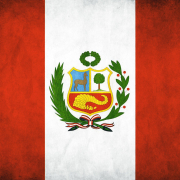At the end of December 2019, Anvisa published the Public Call Notice 01/2019, which called on companies holding carbendazim agrochemical registrations to take part in a meeting on the revaluation procedures to be adopted.
The notice marks the beginning of the re-evaluation of this active pesticide ingredient.
In Brazil, pesticide registrations have no expiration dates. Therefore, once a product enters the market, it can be traded indefinitely. The re-evaluation of pesticides is a technical and legal instrument for reviewing product safety based on new information from monitoring or scientific research.
“The toxicological aspects that motivate carbendazim re-assessments are suspected mutagenicity, carcinogenicity, developmental toxicity and reproductive toxicity. Other toxicological outcomes will also be part of the technical analysis during the re-evaluation, ”says Anvisa.
Meeting
The meeting, to be held on 27th January, 2020, will present the administrative procedures, the scope of the re-evaluation and the approaches to be used for the technical evaluation, according to preparatory documents available on the Anvisa website. The deadline for submission of documents by the companies will also be determined by Agency Resolution 221/2018, and may not exceed 180 days.
Only company representatives previously appointed and bearing an identity document may attend the meeting.
During the meeting, companies must update their registration data at Anvisa and the registration data of their products in the Datavisa system, to ensure that they match the registration data maintained by the Ministry of Agriculture, Livestock and Supply (MAPA) .
Toxicity reduction
Carbendazim is the first on the list of active ingredients of pesticides that will undergo toxicological re-evaluation based on a new selection methodology developed by Anvisa. The list was defined based on risk criteria related to human health, especially considering consumers and rural workers, by using a risk score to define the re-assessment of pesticides.
According to the agency, reviewing list items may lead to a product being banned or kept on the market by taking steps to reduce the risks posed by its use. The re-evaluation may also lead to the decision to keep the product in circulation without any further recommendations.
Source: Agropages
Image source: “Brasil” by ruifo is marked with CC BY-NC-SA 2.0.



